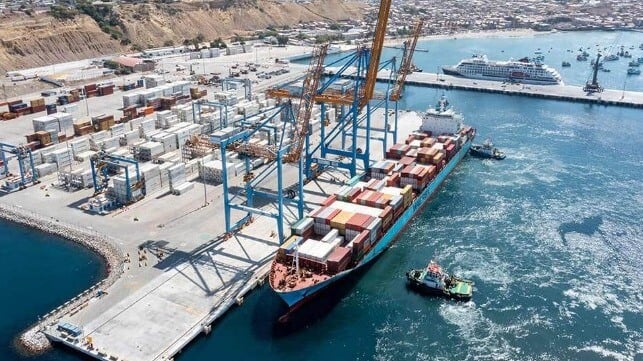Peru Becomes New Center of Rivalry Between the U.S. and China

The U.S. has moved to counter China’s investments in a mega port in Peru with the Department of State funding an initiative that will establish a sister relationship between the ports of Hueneme in California and Paita in Peru.
As China’s President Xi Jinping inaugurated the $3.5 billion megaport of Chancay, South America’s first Beijing-funded port infrastructure project, the U.S announced that Hueneme and Paita will establish a sister port relationship, a move that is largely designed to safeguard Washington’s interest. It was a part of a series of agreements the U.S. announced with Peru timed to the start of the Asia-Pacific Economic Cooperation Forum 2024.
The two ports signed a memorandum of understanding (MoU) that defines the relationship, with the deliverables being fostering trade relations, enhancing commercial exchanges, and promoting economic development. The key focus areas will include improving transparency in procurement, sharing best practices in port management, exploring green energy initiatives, and collaborating on sustainable port development strategies.
The U.S. embassy in Peru said in a statement that the Department of State is funding the initiative but did not reveal the amount of commitments.
The U.S. wants to secure its interests in South America through the port of Paita which is strategically located on the northern coast of Peru in the Piura Region. This makes the facility, which is jointly owned and operated by Terminales Portuarios Euroandinos (TPE) and DP World, serve as a key gateway for Peru and South American trade to international markets. Over the past decade and a half, Paita has become Peru’s most important port for exporting agricultural goods and seafood products, generating more than 1,000 direct and indirect jobs in the north of the country. It handles about 10 percent of Peru's freight traffic with an annual capacity of 650,000 TEU.

that matters most
Get the latest maritime news delivered to your inbox daily.
“In the North of Peru, TPE stands out as the main port for agro-exports and is the potential gateway for importing products. This characteristic makes it a strategic port on the West Coast of South America. I have no doubt that the signing of this MoU will bring mutual benefits in terms of development as green ports, commercial strategies, as well as safety and security,” said Eduardo Cerdeira, CEO of TPE.
Establishing the sister relationship between the two ports came on the same day that China and Peru inaugurated Chancay port, which is located approximately 50 north of Lima and is designed to serve as a major hub for Chinese trade with South America. Chancay which has an initial annual capacity of 1 million TEU is expected to strengthen Peru's maritime infrastructure on the Pacific coast, allowing transshipment of cargo to Chile, Colombia, Ecuador, and Panama. It will permit the countries to bypass ports in Mexico and the U.S. as they trade with Asia while China emphasizes it as a key link to build direct trade.
